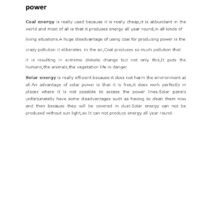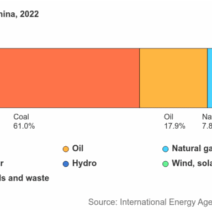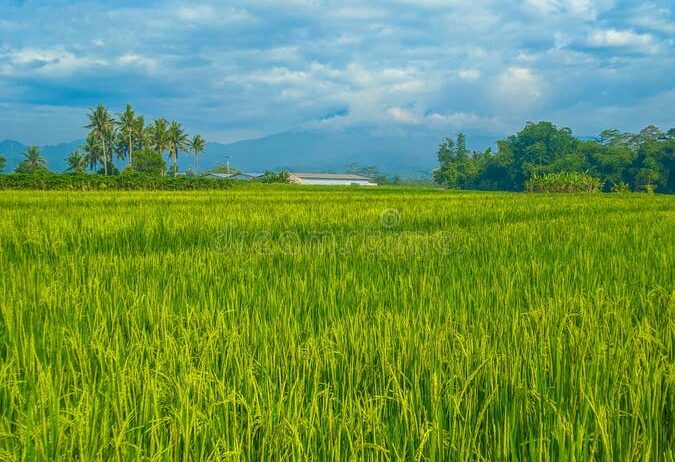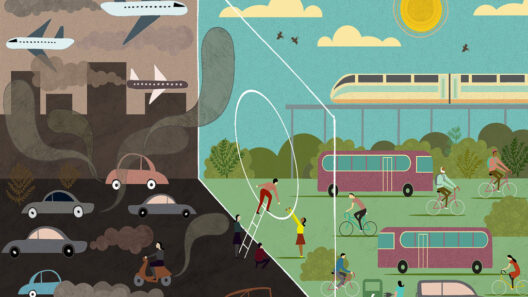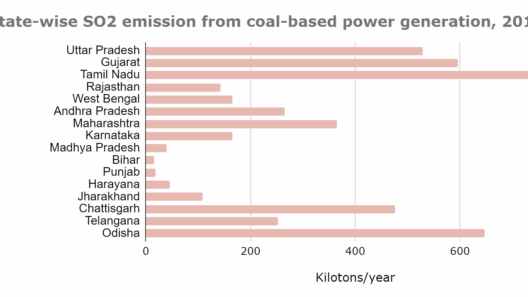Indonesia, with its lush greenery and vibrant landscapes, is synonymous with its iconic rice fields. These terraces, carved into the hillsides, are not merely agricultural feats but emblems of a rich cultural heritage. Yet, as global warming accelerates, these enchanting landscapes face unprecedented challenges that threaten not only the ecological balance but also the very foundation of food security in the region.
The importance of these rice fields extends far beyond their picturesque beauty. Rice is a staple food for millions of Indonesians, playing a crucial role in the national diet and economy. However, the delicate balance of the ecosystem that supports rice farming is increasingly jeopardized by the escalating repercussions of climate change. Understanding these dynamics requires a holistic exploration of the various factors at play.
At the forefront of these challenges is erratic rainfall. Traditionally, Indonesian rice fields relied on predictable monsoon patterns. However, as global temperatures rise, climate models predict shifting precipitation patterns. Farmers now face the dilemma of shorter wet seasons and prolonged dry spells. This variability not only disrupts planting schedules but also adversely affects yield quality and quantity. For rice varieties that have evolved to thrive in specific climatic conditions, such alterations can be devastating, leading to reduced harvests and increased vulnerability to pests.
Moreover, rising temperatures contribute to a phenomenon known as “heat stress.” Rice crops, particularly during their flowering and grain-filling stages, are sensitive to temperature fluctuations. Studies indicate that even a slight increase in average temperature can significantly impact rice productivity. This could result in lower yields, thereby exacerbating food shortages and elevating prices in local markets.
Water scarcity poses another pressing issue exacerbated by climate change. Indonesia harbors myriad rivers and lakes; however, over-extraction, coupled with changing precipitation, contributes to declining water tables. Agricultural practices historically relied heavily on these freshwater resources, but as rain patterns become more erratic, farmers are compelled to adapt their irrigation methods. Sustainable water management becomes imperative, yet many communities lack access to advanced technology or funding to implement effective solutions.
The creeping specter of sea-level rise is an additional harbinger of unrest for coastal rice farmers. Indonesia is one of the nations most susceptible to rising seas; as saltwater infiltrates freshwater systems, cultivability diminishes. In coastal provinces where rice paddies traditionally flourished, salinity intrudes, fundamentally altering soil chemistry and rendering lands inhospitable for planting. Here, adaptation means shifting to salt-tolerant rice varieties or even abandoning land that has been farmed for generations.
Climate change is not merely an environmental issue; it also intersects with socio-economic realms. The agrarian lifestyle that many rural Indonesians depend on is now punctuated by uncertainty. As traditional farming practices become obsolete, rural communities confront the dilemma of migration. Landlessness and unemployment push families toward urban centers, further stressing urban infrastructures. This exodus can sever the cultural ties that bind agricultural communities, potentially leading to a loss of traditional knowledge regarding rice cultivation — knowledge that has evolved over centuries.
Resilience and adaptation strategies are now more crucial than ever. Agroecological approaches, which integrate traditional farming wisdom with modern science, offer a beacon of hope. Techniques such as crop diversification, intercropping, and organic farming can enhance soil health and increase resilience against climate stresses. By fostering biodiversity, farmers can create ecosystems that mitigate the adverse effects of climate change while ensuring a more stable food supply.
Education and technology also play pivotal roles in transitioning to sustainable practices. Community workshops focused on climate adaptation strategies can empower farmers with knowledge to enhance productivity sustainably. Moreover, promoting research into climate-resilient rice varieties can safeguard food systems. Collaborative efforts between government bodies, NGOs, and the private sector can galvanize the agricultural sector, fostering significant advancements in adaptation methodologies.
International cooperation is another critical component in the fight against climate change. As global actors align to address the climate crisis, Indonesia can leverage support through policies that prioritize sustainable agricultural practices. Climate financing for initiatives focused on sustainability can enhance resilience in rice farming communities. Additionally, participating in global forums allows Indonesia to share unique insights gained from its experiences with climate change adaptation while also learning from best practices implemented elsewhere.
As the world becomes more interconnected, the impact of climate change reverberates across borders. The fate of Indonesian rice fields hangs in the balance, and their preservation is essential not only for national food security but for global agricultural biodiversity. Addressing the nuances of climate-induced challenges is imperative. The rice paddies, the idyllic symbols of Indonesia’s agricultural heritage, demand vigilant stewardship and concerted action to ensure that they can thrive for generations to come.
